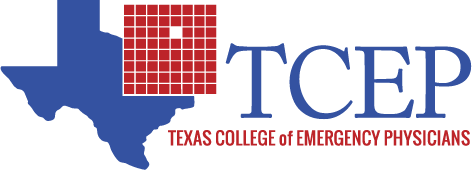Legal UpdateJune 2021
Effective Documentation For The 21st CenturyI know there are numerous current and former medical directors out there that are tasked with routinely reviewing the clinical care and medical record documentation of your colleagues. How many times have you reviewed a chart with a chief complaint of eye pain, ear pain, or sore throat, and there was a full GU exam also documented? While you may have shook your head from side to side, and maybe even chuckled a bit, this indiscriminate documentation may have significantly elevated the patient’s medical charges. In days of yesteryear (i.e. last month), the patient may have never been aware of the errant documentation due to multiple barriers of getting copies of the medical record. Starting in April 2021 though, The 21st Century Cures Act (Cures Act) virtually eliminates all obstacles to patients having instantaneous access to their medical records. The Cures Act was signed into law in December of 2016 by then President Obama. The law was set to become effective in November of 2020, but the COVID pandemic pushed the start date back to April 5, 2021. For our purposes as emergency physicians, there are two essential and applicable elements of the Cures Act. First, The Cures Act furthers the age old attempt to increase interoperability (computers talking to each other) among different electronic health record platforms. Secondly, the Cures Act mandates patients have immediate access to their medical records without “information blocking.” Information blocking is an umbrella term of art used for any process that unreasonably limits or restricts the patient’s access to their medical records. At the present time, we cannot say with absolute definity what processes will be deemed “information blocking” or when we should affirmatively be blocking information, but some practices, such as charging a fee for medical records or unreasonable delays in producing the medical records, will no longer be tolerated by The Office of the National Coordinator for Health Information Technology (ONC), the lead governmental agency tasked with implementing The Act. You may be now asking yourself why any of this would even apply to you as an emergency physician? Remember the GU exam you documented on the ear pain? Now, that patient has easy and immediate access to their medical record, and they are quite upset that they received a level 5 visit charge for a level 3 visit, and furthermore, you documented a GU exam that never happened. If there happened to be a bad outcome, you could guarantee an attorney will be called to investigate the matter. In the presence or absence of a bad outcome, the Texas Medical Board and your employer will additionally be notified regarding the unethical and unlawful up-coding of the medical bill(s). If that’s not enough, a complaint to the US Attorney General can initiate a criminal False Claims Act (FCA) investigation against you and your workplace for any past or ongoing pattern(s) of misconduct. FCA investigations are not covered by your malpractice policy and are generally frowned upon by any prospective employers. Moreover, what will be difficult for us to discern from the outset, is when we need to block information from the patient, and if there is any lingering liability if we don’t block anything. For example, should we block the exchange of records on a patient encounter that deals with some sort of intimate partner violence? What if the partner has access to the medical record and additional harm comes to your patient? Would we be culpable if the records were not blocked? Should we block the viewing of labs that may reveal a sinister diagnosis (i.e. HIV, cancer, herpes, etc.) before having an opportunity to speak directly with the patient? Since we have an obligation not to block information, there seems to be some logic in our obligation to affirmatively block some information. I can assure you that patients are taking greater scrutiny of their billing and medical records due to the increasing prevalence of high deductible healthcare policies and patient’s greater accountability for a larger portion of their medical bills. In an effort to keep you out of hot water, please ensure you document what was actually performed at the bedside and provide adequate justification for any diagnostic testing ordered. Lastly, keep your eyes and ears open for any guidance on when and when not to block a patient’s medical information. Kenneth Alan Totz, DO, JD, FACEP No information within this publication should be construed as medical or legal advice. Independent medical and/or legal advice should be sought based on each individual’s particular circumstances. |

